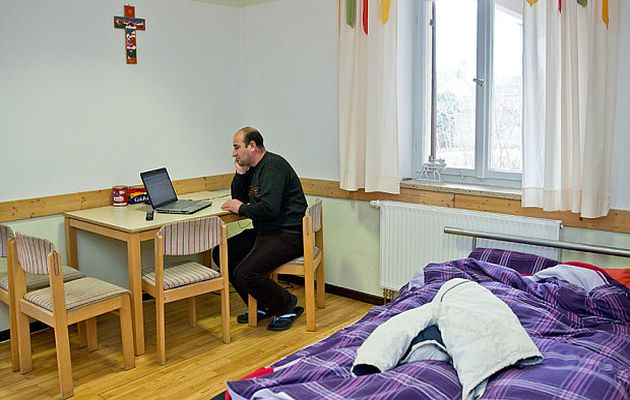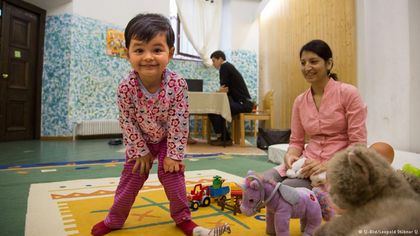German churches give asylum to refugees
Hundreds of refugees seek sanctuary in churches to avoid deportation, under the protection of an ancient custom.
Deutsche Welle, The Telegraph, Christian Today · GERMANY · 18 MARCH 2015 · 16:10 CET

Churches in Germany are providing sanctuary for asylum seekers risking deportation in an unprecedented challenge to EU rules they say are turning genuine refugees away.
There are currently 222 Catholic and Protestant Churches sheltering at least 411 refugees according to the German Ecumenical Committee on Church Asylum. The age-old custom is still respected by the authorities though it is not enshrined in German law.
The majority of these refugees are so-called 'Dublin cases' – a principle in EU law which means that refugees must seek asylum in the first country in which they land. Once asylum-seekers have been in Germany for six months the EU’s Dublin rules no longer apply, and their cases can be heard by the German authorities.
THE GOHARI FAMILY
Mehdi Gohari, his wife Lailoma Mohammdi, and their children Husnia, 7, and Ali, 1, landed in Greece having fled from Afghanistan. The Goharis are Hazaras, a Shia Afghan minority persecuted by the Taliban. Gohari said a member of the local Taliban had demanded to marry their daughter, Husnia, when she was 13 years old.
In an interview with the Telegraph, they described their six-year-long journey through Europe as they were sent from one country to another.
After seeking asylum in the Netherlands, they had to flee to Germany by bus days before they were due to be deported. "The officials told us 'It's not our problem. Go somewhere else'," Gohari said.
They were at risk of deportation from Germany too, when The Miriamgemeinde, a Protestant church in the suburbs of Frankfurt, stepped in and agreed to take them in last November.
The church had to act swiftly and provide shelter at short notice. Their stay has cost the church about €3,000 so far, and the family is reliant on volunteers for help with their shopping and anything that requires leaving church property.
If the Goharis leave the shelter of the small church house where they are staying, they could again face deportation. Even though church sanctuary is not recognised in German law, it is still a religious country. No German police officer will venture there to drag them away.
The Goharis' case is currently under review. The church pastor, Thomas Volz, told the Telegraph: "People have asked me, 'What do we do if they say no?'" says Mr Volz.
"I tell them if that happens every Christian must decide for himself. We cannot keep them in sanctuary at the church if that happens. But we will not give the Goharis up to the police."

UNPOPULAR CUSTOM
The numbers being given shelter by churches have risen so high that Thomas de Maiziere, the Interior Minister, recently demanded a stop to the practice.
According to Deutsche Welle, Maiziere said in a radio interview that even churches were not above the law, and he compared the custom to Sharia law, as "another example" of the rules of state taking precedence over religious views.
Days later, in an interview with the Deutsche Welle, he retracted the comparison he made: “I would like to take back the Sharia comparison, though I was partially misunderstood here”. “As a Christian, I am in favour of church sanctuary, as long as the refugees are re-entered into the asylum-seeking process at one point”, he stated.

Church asylum is an unpopular custom among German politicians. At the end of February a new trial policy was agreed in which church asylum cases would be considered at both a local and federal level.
Around 200,000 people tried to seek asylum in the country last year, partly due to the influx from Syria. The growth of anti-Islamisation campaign group Pegida, which began protest marches in October, has also raised concerns about Germany's attitude toward asylum seekers.
Published in: Evangelical Focus - europe - German churches give asylum to refugees
